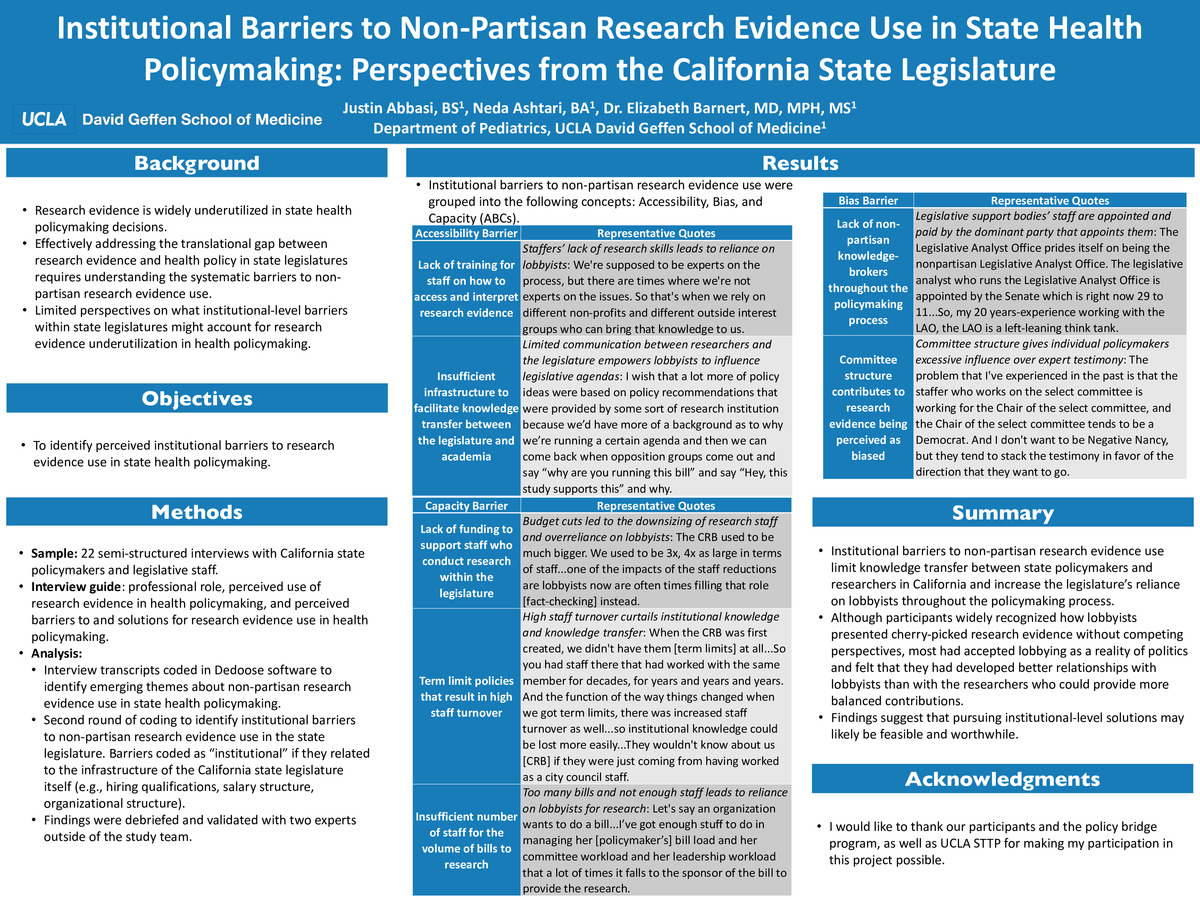-
Author
Justin Abbasi -
PI
Dr. Elizabeth Barnert, MD, MPH, MS
-
Co-Author
Neda Ashtari, BA
-
Title
Institutional Barriers to Non-Partisan Research Evidence Use in State Health Policymaking: Perspectives from the California State Legislature
-
Program
STTP
-
Other Program (if not listed above)
-
Abstract
Background: Effectively addressing the translational gap between research evidence and health policy in state legislatures requires understanding the systematic barriers to non-partisan research evidence use. Previous studies have identified several individual-level barriers to non-partisan research evidence use, but present limited perspectives on what institutional-level barriers within state legislatures might account for research evidence underutilization in health policymaking.
Objectives: We describe the perspectives of California state policymakers and legislative staff on non-partisan research evidence use in California state health policymaking. Our analysis seeks to: (1) understand the perceived extent and mechanisms of research evidence use in state health policymaking, (2) identify perceived institutional barriers to research evidence use in state health policymaking, and (3) examine the roles that policymakers and legislative staff play in bridging the “know-do” gap.
Design: Semi-structured recorded interviews were conducted in person and via phone.
Participants: 22 California state policymakers and legislative staff were interviewed for this study.
Approach: We performed thematic analysis to identify barriers to non-partisan research evidence use within the California state legislature. After extensive literature review, we conducted a second round of coding to identify barriers operating at the institutional level.
Key Results: Institutional barriers to non-partisan research evidence use were grouped into the following concepts: Accessibility, Bias, and Capacity (ABCs). More specifically, participants described: limited accessibility of non-partisan research evidence, bias in institutional knowledge-brokers, and insufficient capacity of legislative staff to utilize research evidence due to limited resources and time constraints. Participants indicated that the institutional barriers identified lead to an overreliance on lobbyists for information.
Conclusions: Institutional barriers to non-partisan research evidence use limit knowledge transfer between state policymakers and researchers in California and increase the legislature’s reliance on lobbyists throughout the policymaking process. Findings suggest that pursuing institutional-level solutions may likely be feasible and worthwhile.
-
PDF
-
Zoom

